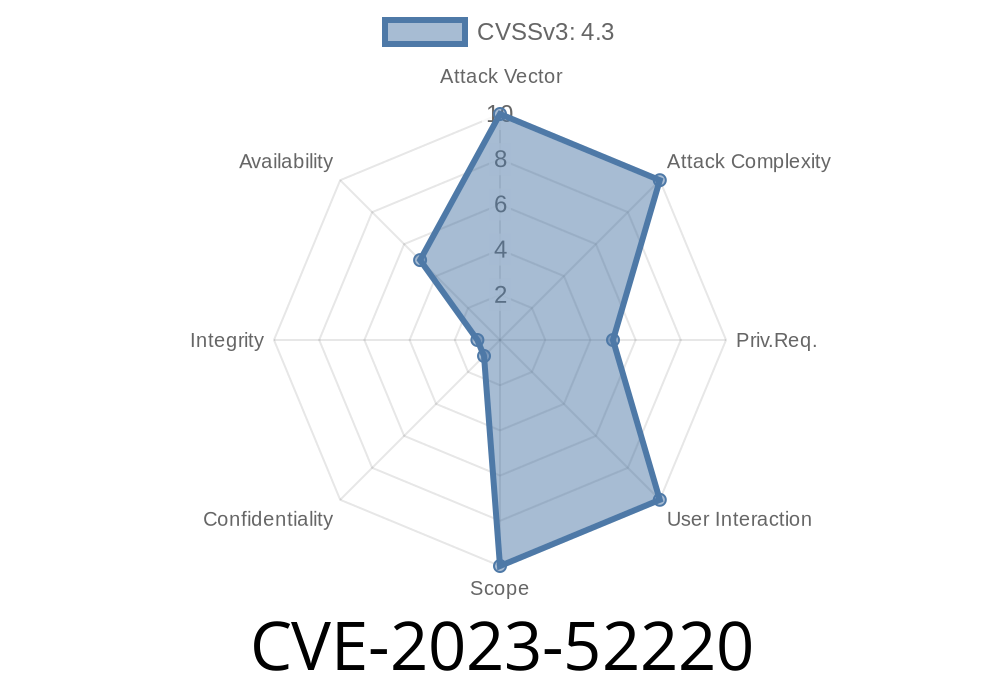If you use WordPress, there’s a good chance you use analytics plugins to keep track of your site’s visitors and statistics. One of the most popular is Google Analytics by MonsterInsights. In early 2024, a serious vulnerability—CVE-2023-52220—was discovered in this plugin. If you run any version up through 8.21., you need to pay attention.
In this post, I’ll break down what happened, show code examples of the problem, share references, and even describe how the exploit works. No technical jargon overload—just what you need to know.
Versions: Through 8.21.
- CVE: CVE-2023-52220
What Is “Missing Authorization?”
Basically, a “missing authorization” flaw means the software *forgets to check* whether someone is allowed to do something sensitive—like change settings or view secret data. In WordPress plugins, this often happens in AJAX actions or REST endpoints.
What Was The Bug In MonsterInsights?
MonsterInsights added AJAX actions (ways to run background tasks from the admin dashboard), but failed to properly check whether the user running them had the right permissions. As a result, someone who wasn’t supposed to could hit those actions directly—even if they weren’t logged in!
Let’s look at a hypothetical example that matches the kind of code MonsterInsights used
// Vulnerable AJAX handler in MonsterInsights
add_action('wp_ajax_mi_save_settings', 'mi_save_settings_callback');
function mi_save_settings_callback() {
// Missing: check if current user is allowed
$new_settings = $_POST['settings'];
update_option('mi_settings', $new_settings);
wp_send_json_success('Settings Saved');
}
What’s missing here? No current_user_can('manage_options') check!
That means *any* logged-in user (or in some cases, even non-logged-in users if wp_ajax_nopriv is registered) could POST to /wp-admin/admin-ajax.php with the right action, and change important settings.
How the Exploit Works
1. Find the AJAX endpoint: The attacker discovers /wp-admin/admin-ajax.php.
Send a POST request:
POST /wp-admin/admin-ajax.php?action=mi_save_settings
Content-Type: application/x-www-form-urlencoded
settings[ga_id]=UA-12345678-1&settings[tracking]=on
Alter configuration stored in the WordPress database
On some setups, with chaining, it could be possible to perform privilege escalation or other attacks.
Should You Panic?
If your site runs a vulnerable version and allows user registration (or someone can guess AJAX action names), *yes, this is serious.* Attackers might change analytics settings, inject bad data, or worse.
How To Fix
Upgrade ASAP. MonsterInsights patched the issue after it surfaced publicly. Always run the latest version from WordPress.org.
You can double-check what version you have in the WordPress plugins dashboard. If it says 8.21. or below—update!
More Resources & References
- CVE-2023-52220 official entry (NVD)
- MonsterInsights plugin on WordPress.org
- Patchstack advisory archive
- MonsterInsights changelog
Conclusion
This bug in MonsterInsights is the kind of “easy mistake, big consequences” issue that can catch even major developers off guard. If you run WordPress and depend on plugins, always keep things updated and check security advisories. A missing line of code could let someone tweak your analytics—or worse—without your consent.
Timeline
Published on: 04/25/2024 10:15:08 UTC
Last modified on: 06/04/2024 17:22:39 UTC
